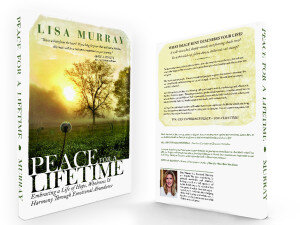This political season has reminded me of none other in its sheer viciousness. The art of attacking has reached epic proportions. The candidates do it. The pundits do it. We do it. If any of us conducted ourselves in person as we feel emboldened to do on social media, we’d be out of a job and perhaps out of friends.
We deserve more from each other.
My disappointment comes down to the one word that destroys all relationships, even relationships across political maps and perspectives: contempt.
We’re Armed and Ready For Battle
I see three ways contempt is not only polluting politics, but destroying any unity that historically has bound us together, even in the midst of our differences.
- Contempt damages respect. Where there is no respect, there is little room for mutuality or common ground. We throw polite, even religious bombs from the safety of our computer keyboard without acknowledging the sincere, if different beliefs of those reading. We don’t see the explosion on the other side of the screen as others read our words. We don’t see the anger and resentment that builds inside as a result of our disrespect and contempt. We can hold our beliefs and values. We can share them openly without using contempt as a means to make us feel like we are winning. We are not winning. No one is winning.
- Contempt kills safety. Both sides show contempt. Both sides hurl insults, call names. Calling names will completely destroy any safety in our relationships. Yet we feel empowered to do so because we routinely see our candidates, pundits, and leaders spewing hate-filled aspersions toward anyone with whom they disagree. My mother used to tell me that smart people had better vocabularies and could find better words to describe their differences. Calling names was prohibited in our home as vulgar and disrespectful. Yet in the current political climate contemptuous name-calling has proliferated in its routine and acceptance. Weren’t we taught better?
- Contempt destroys relationships. Science has long known that in relationships, contempt is a relationship killer. Dr. John Gottman, one of the leading relationship researchers has found contempt to be one of four ‘Horseman of the Apocalypse,’ deadly to the life and stability of any relationship. We are more divided as a nation and a people than ever. Our relationships are crumbling.
[clickToTweet tweet="We will only make it as a nation if we make it together. #PeaceforaLifetime" quote="We will only make it as a nation if we make it together."]
The myth we buy into is that if our side wins, we can do everything we want and ignore everyone with whom we disagree. We’ve witnessed this in the last few decades. The truth is we cannot survive without each other. We need each other. We need to learn how to communicate, to hold our beliefs and values while learning how to disagree respectfully, kindly, graciously. We need to remove the viciousness and contempt from our dialogue.
We routinely denounce the candidates as needing to set the tone, but isn’t it up to the people to set the tone for how we talk with others as well as for what we expect from our candidates and leaders?
What Needs To Change - Respect
Our leaders will only begin to respect one another if we as a people learn to respect one another —not just those who share our political viewpoints. Because conservatives believe in the rule of law regarding illegal immigration and border security does not mean they are racists. Likewise, because progressives believe in government as the solution to economic and social issues does not mean they are welfare hacks.
Some might say, “What’s the point? This is the only way to be heard,” or “Why bother?” We try because we should all be on the journey of healing, learning, and growing. We should require better of ourselves. We should inspire others to be better, to speak better, to behave better. Besides, as my mother used to say, “Two wrongs don’t make a right.”
Yes, It’s Okay To Disagree
Our politics has historically been a vibrant display of differing viewpoints. Our republic can handle disagreements, even rowdy ones. What we cannot handle is the disrespect, the contempt and the name-calling. It will ultimately cost us the country we love.
Stop the name-calling. Remove the "-ists" and "-ics" from your dialogue as well as your Facebook posts. It diminishes no one but you. Everyone has arrived at their beliefs honestly. We can hold our perspectives, share them and even debate them with integrity, wisdom, and respect.
Next time you feel compelled to post on social media, ask yourself if your words are respectful? Are they gracious, even to others who have opposing views? Are you calling anyone names? Choose your words wisely. We have seen how our words can wound and destroy. But our words also have the power to bring life and healing to a nation. Let’s raise the bar.
[clickToTweet tweet="Our words have the power to bring life & healing to a nation.Let’s raise the bar.#PeaceforaLifetime" quote="Our words have the power to bring life and healing to a nation. Let’s raise the bar."]
Can you recall a time when you said something you later regretted? Leave your comment below. I’d love to have you join the conversation!
My new book, Peace For A Lifetime shares the power of our words and how important healthy communication is to every relationship in our lives. To learn more about the book, click here. To order the book now, click here!

[yikes-mailchimp form="1" title="1" description="1" submit="Submit"]
